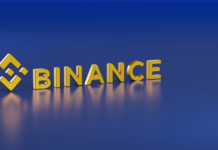Qtum recently released its 2020 review report.
Qtum is made up of a team of individuals who contribute towards the technological development of Ethereum’s Virtual Machine and Bitcoin’s UTXO model. In this way, they create advanced innovations for the growth of the blockchain space. The Qtum 2020 report gives a review of the various releases, offline staking, DeFi adoptions, and other achievements the platform made during the last year.
Releases of Upgraded Versions of Qtum Core
In the beginning of 2020, Qtum released the Qtum Core version 0.19.0 and closed the year with Qtum Core v0.20.1. Between both releases, there have been some notable upgrades over the course of 2020. In August, the offline staking protocol was upgraded to version 0.19.1. This upgrade caused a radical change to the Qtum blockchain.
As a result of the upgrade, users were able to delegate their QTUM to super stakers, even without the usual requirements of running a node of giving away custody of their delegated coins. The upgraded version of the offline staking protocol also enabled users to run a super staker. In this way, they were able to delegate their QTUM to enable them to earn block rewards from the delegators.
Furthermore, users are able to delegate their QTUM to a super staker from a cold wallet. The bottom line is that offline staking enables users to help in securing the network while getting block rewards whether offline or online.
Concerning its finances, the Qtum Foundation finished its final schedule for the vesting of funds back in March 2020. Funds were allocated to marketing, future business development, education, and academic research.
Qtum Programs
Continuing from 2019, the Qtum Galaxy Full Nodes Program ended in 2020 with the Qtum Stake-A-Thon following closely. This was also before the Qtum offline staking protocol hardfork. Created in a bid to promote the offline staking protocol, the Qtum Stake-A-Thon Program rewarded users that participated in securing the network either by running a super staker or delegating QTUM to a super staker or a pool.
The Qtum Stake-A-Thon Program was a huge success as over 2 million Qtum addresses were activated. Also, there was an increase in the network weight, and this further secured the blockchain while enabling everyone a chance to stake their QTUM.
DeFi Adoption
Qtum shifted its focus to decentralized finance (DeFi) in August 2020 as a means to expand the DeFi ecosystem. In line with the shift, Qtum released the Decentralized Finance Incentive Program. The aim of the program was to allow developers to develop or bridge to DeFi projects on the Qtum blockchain. Developers had to apply to be able to participate in the program.
Qtum discovered that it was better for DeFi as the platform offers lower transaction fees and higher TPS. The Qtum blockchain makes use of a version of Ethereum’s Virtual Machine and, as a result, projects that exist on Ethereum can become compatible with the Qtum blockchain. The Qtum blockchain can expand its user base in the process.
To continue its development, Qtum created a set of developer tools known as Janus. With Janus, projects can easily port over to Qtum. The Decentralized Finance Incentive Program is still open for developers that want to apply for a grant to enable them build their project on Qtum.
Some DeFi Projects on Qtum Blockchain
The program has produced some DeFi projects, such as QiSwap. QiSwap is a fully decentralized protocol that provides automatic liquidity for QTUM. This protocol is based on automated market-making (AMM) algorithms. QiSwap has also proven to be an outstanding building block in the DeFi space.
The Komodo AtomicDex is another decentralized exchange that has shown its support for QRC20. As decentralized exchanges like QiSwap and AtomicDex already have support for QTUM, developers are able to list their QRC20 tokens on either of the exchanges when they integrate their DeFi project on Qtum.
Neutron and Phantom
There will still be development of the Neutron and Phantom protocols, but priority has been placed according to Qtum’s current goals. On Twitter, Jordan Earls and Patrick Dai gave a sneak peek into the future developments of Qtum Neutron. While Jordan mentioned a forthcoming article on Qtum Neutron, Patrick Dai also gave his thoughts on the development of Qtum and what to expect from Qtum in 2021.
Before now, Qtum was developing middleware for blockchain virtual machines (VM). This middleware, known as Neutron, is a key innovation enabling Qtum and other blockchains to operate multiple virtual machines.
QTUM Price
As of the time of publication, Qtum price was $3.31 with a 24-hour trading volume of $292,050,300. QTUM price also went up 2.7% over the last 24 hours. Besides, it has a circulating supply of 103 million QTUM coins and a max supply of 107.8 million. ZBG is also the current most active market trading QTUM.
Join us on Telegram to receive free trading signals.
For more cryptocurrency news, visit the Altcoin Buzz YouTube channel.




























